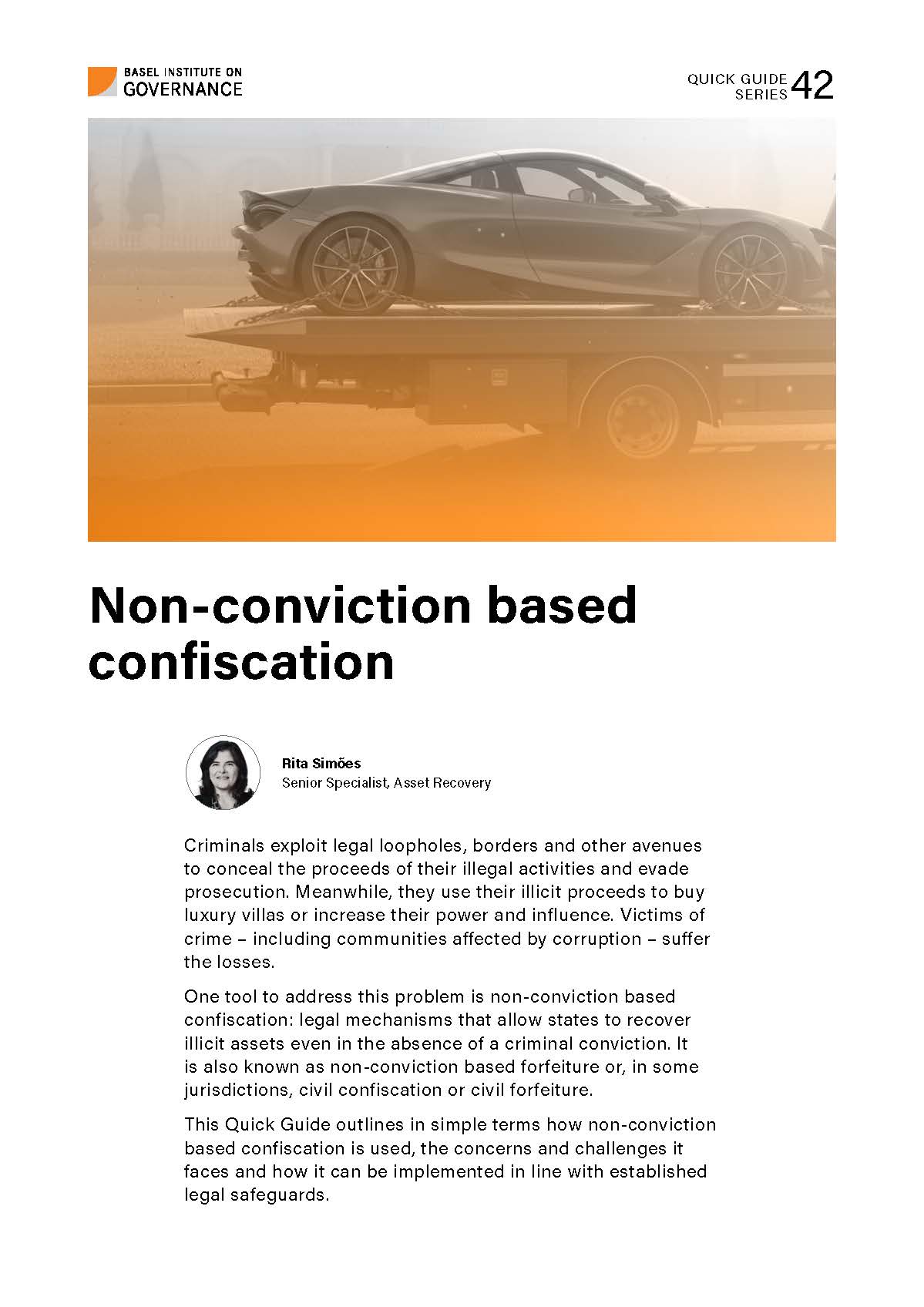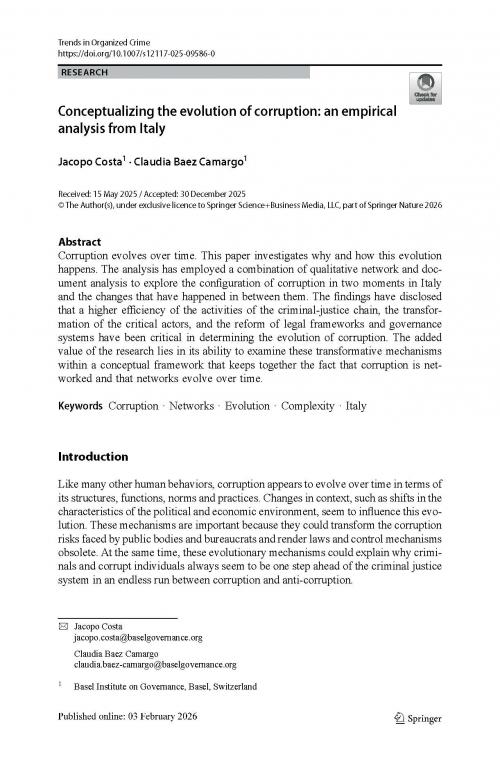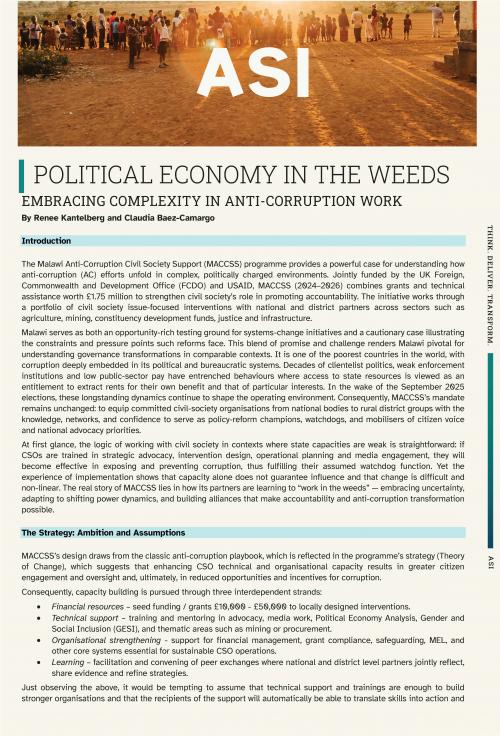Quick Guide 42: Non-conviction based confiscation
Criminals exploit legal loopholes, borders and other avenues to conceal the proceeds of their illegal activities and evade prosecution. Meanwhile, they use their illicit proceeds to buy luxury villas or increase their power and influence. Victims of crime – including communities affected by corruption – suffer the losses.
One tool to address this problem is non-conviction based confiscation: legal mechanisms that allow states to recover illicit assets even in the absence of a criminal conviction. It is also known as non-conviction based forfeiture or, in some jurisdictions, civil confiscation or civil forfeiture.
This Quick Guide outlines in simple terms how non-conviction based confiscation is used, the concerns and challenges it faces and how it can be implemented in line with established legal safeguards.
About this Quick Guide
You are free to share and republish this work under a Creative Commons BY-NC-ND 4.0 Licence. It is part of the Basel Institute on Governance Quick Guide series, ISSN 2673-5229.
Links and other languages




